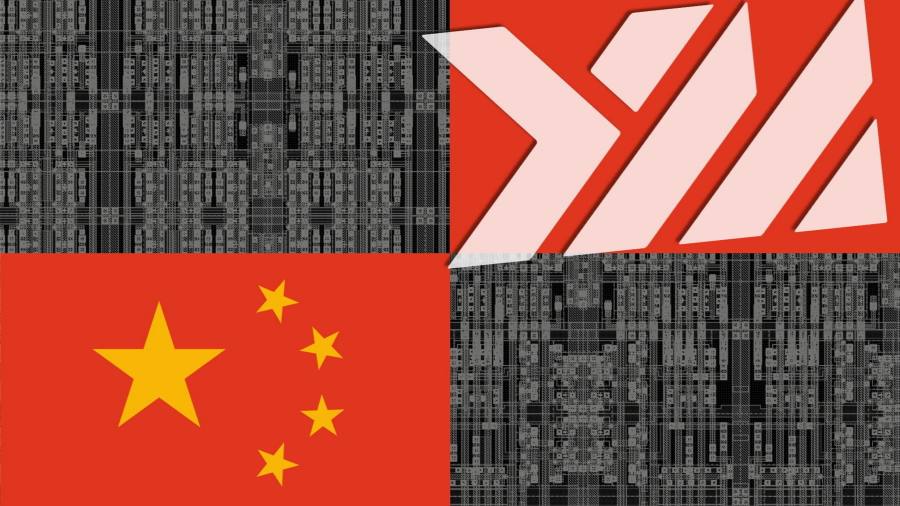
The US has placed three dozen Chinese companies on a trade blacklist, in another escalation of its effort to slow China’s development of advanced chips and technologies for military uses such as hypersonic weapons.
The commerce department put 36 Chinese groups on the “entity list”, a move that means American companies will require extremely hard-to-obtain licences to export critical technologies to those customers in China.
It also applied the “foreign direct product rule” to 21 entities, meaning non-American companies will be prohibited from exporting products that contain a specified amount of US technology to the Chinese groups.
The dramatic action comes after Washington in October unveiled severe export controls designed to prevent China from developing high-end chips or producing the tools required to manufacture the chips domestically, as part of a growing effort to slow its military modernisation.
“We are building on the actions we took in October to protect US national security by severely restricting . . . China’s ability to leverage artificial intelligence, advanced computing and other powerful, commercially available technologies for military modernisation and human rights abuses,” said Alan Estevez, the top commerce department official for export controls.
The best-known target on the list is Yangtze Memory Technologies, China’s largest memory chip producer, which has been accused of violating US export controls by supplying Chinese telecom equipment maker Huawei, the Financial Times reported. The commerce department said it targeted YMTC and a subsidiary in Japan because of “the risk of diversion”.
YMTC is not one of the 21 Chinese groups hit with the foreign direct product rule.
“I’ve long sounded the alarm on the grave national security and economic threats behind YMTC,” said Chuck Schumer, the top Senate Democrat. “YMTC poses an immediate threat to our national security so the . . . administration needed to act swiftly to prevent [it] from gaining even an inch of a military or economic advantage.”
Schumer has added an amendment to the 2023 defence spending bill that would ban the government from buying or using chips from China’s YMTC, Semiconductor Manufacturing International and ChangXin Memory Technologies. The Senate this week is expected to approve the massive $858bn defence bill, which has already passed the House.
One of the hardest hit groups was Cambricon, one of the leaders of a dynamic breed of chip design companies that has been driving the growth of China’s semiconductor and AI industries. The company and nine of its affiliates were placed on the entity list and also subjected to the foreign direct product rule.
Cambricon is a critical company in China’s domestic chip supply chain. One Cambricon engineer said the US export controls introduced in October had not affected the group much because their chip designs did not meet the target threshold.
However, the entity listing will create a major problem because it sources chip intellectual property from UK-based Arm and chip design tools from US makers Cadence and Synopsys. It also relies on Taiwan’s TSMC to produce the chips it designs.
The US also listed Tiandy, a surveillance camera and facial recognition software company, for allegedly facilitating the repression of China’s Uyghur minority and helping Iran obtain US technology.
Other companies added to the list include Chinese chip toolmaker Shanghai Micro Electronics Equipment Group and state-owned military suppliers such as AVIC Research Institute for Special Structures of Aeronautical Composites and affiliates of China Electronics Technology Group Corporation.
In addition, the US hit Shanghai Integrated Circuit Research and Development Center, a company backed by the Shanghai government that is involved in efforts to build domestic chips without using American technology. The group is also working with Huawei, which is already on the entity list based on concerns that it could facilitate Chinese espionage around the world.
In one welcome piece of news for China, the US removed 25 Chinese companies from the “unverified list” after it was able to determine they were not using US technology inappropriately.
When Washington unveiled its export controls in October, it added 31 Chinese companies to the unverified list and established a policy that set a 60-day clock for the Chinese commerce ministry and Chinese groups to allow the US to conduct end-use checks.
Matthew Axelrod, the top commerce official for enforcement, said the policy was “yielding results”. Beijing had for several years refused to allow end-use checks, partly as a result of the trade war that President Donald Trump launched against China in 2018.
The commerce department also placed nine Russian companies on the entity list because it was unable to complete end-use checks of the groups.
Follow Demetri Sevastopulo on Twitter